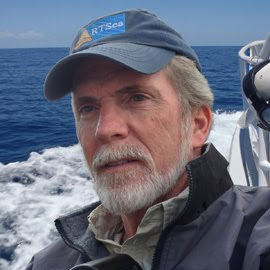 International organizations that actually have the power to regulate commercial activities for the benefit of ecological or conservation interests generally do so in incremental steps. The political and economic implications of their actions on behalf of the environment or endangered species can often dull the force of progressive policy proposals, and this can be a source of great frustrations to many conservationists. It's a tough and often frustrating arena to work in and if you don't have the stomach or the patience for it, it's best to steer clear and focus on regional or national initiatives - you'll probably lead a more stress-free life.
International organizations that actually have the power to regulate commercial activities for the benefit of ecological or conservation interests generally do so in incremental steps. The political and economic implications of their actions on behalf of the environment or endangered species can often dull the force of progressive policy proposals, and this can be a source of great frustrations to many conservationists. It's a tough and often frustrating arena to work in and if you don't have the stomach or the patience for it, it's best to steer clear and focus on regional or national initiatives - you'll probably lead a more stress-free life. The International Commission on Conservation of Atlantic Tuna (ICCAT) is a worldwide group of some 48 parties (including the European Union) which meets annually to consider commercial quotas and conservation regulations for tuna, billfish, and sharks. This year, ICCAT entertained six different proposals regarding the taking of several species of shark. The end result was a mixed bag of significant progress, a few exemptions or loopholes retained, and some proposals going nowhere. Many of the proposals revolved around oceanic whitetip, porpeagle, hammerhead, mako, and thresher sharks - all listed as either globally endangered or vulnerable to extinction by the IUCN (International Unions for Conservation of Nature).
The International Commission on Conservation of Atlantic Tuna (ICCAT) is a worldwide group of some 48 parties (including the European Union) which meets annually to consider commercial quotas and conservation regulations for tuna, billfish, and sharks. This year, ICCAT entertained six different proposals regarding the taking of several species of shark. The end result was a mixed bag of significant progress, a few exemptions or loopholes retained, and some proposals going nowhere. Many of the proposals revolved around oceanic whitetip, porpeagle, hammerhead, mako, and thresher sharks - all listed as either globally endangered or vulnerable to extinction by the IUCN (International Unions for Conservation of Nature).The Good News:
- The ICCAT agreed to prohibit retention of oceanic whitetip sharks (a fancy way of saying catching oceanic whitetips is no longer allowed by ICCAT-participating countries).
- The exploitation (taking of) hammerhead sharks was restricted. There is an exemption though, which is listed in The Bad News below.
- ICCAT agreed to establish a process for penalizing countries who do not accurately report shark catches. Unreported shark catches is considered a major international problem by many conservation groups.
- A reduction of fishing pressure on shortfin makos, with prohibition penalties for parties that do not accurately report catches, was agreed to. But there's a caveat (see below).
- A proposal to prohibit retention of porbeagle sharks failed because of a lack of consensus from the EU, primarily due to resistance from Canada.
- Exemption to the hammerhead shark restriction: developing coastal states can catch hammerheads for food but must ensure that they do not enter the international trade.
- Due to objections from Japan, Korea, and China, the restrictions on shortfin mako sharks will not begin until 2013.
- For the second year in a row, a proposal to ban removal of shark fins at sea was tabled, with Japan opposing the ban. Many countries have or are in the process of initiating this ban within their territorial waters. But in international waters, it's shark finning as usual.
ICCAT is one of a few worldwide bodies where international conservation policies and regulations can get hammered out. But in the world of international diplomacy, it can get ugly, with economic, political, and ecological interest groups maneuvering to exert influence. Think of it as diplomatic kickboxing - but it's the sharks that are taking all the blows.
Read PR Newswire press release.

















No comments:
Post a Comment